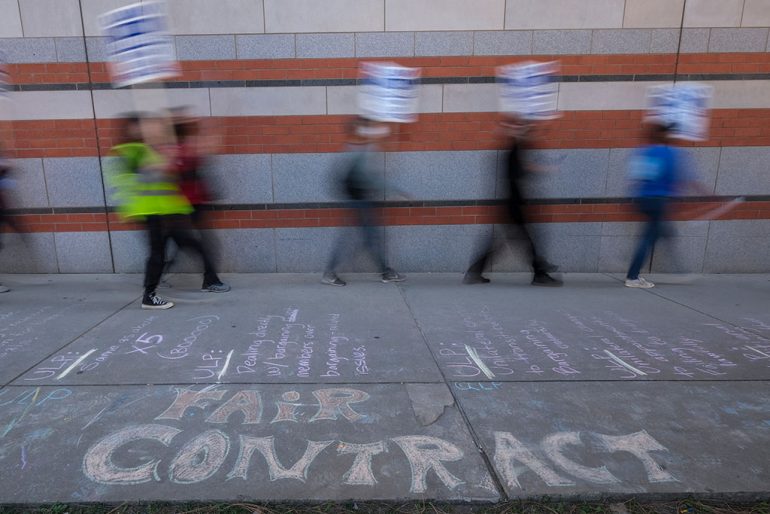
The United Auto Workers (UAW) union is on the brink of launching a significant labor strike that could have far-reaching implications for the U.S. automotive industry. The union has laid out plans for a series of strikes targeting individual U.S. auto plants, marking a historic move as it would be the first-ever simultaneous walkout against the Detroit Three automakers – Ford Motor, General Motors (GM), and Stellantis NV.
This escalation comes after months of negotiations, which began in July, between the UAW and the three major automakers. Unfortunately, these negotiations have not yet resulted in a satisfactory agreement. The stakes are high, with both U.S. automakers and union negotiators seemingly pessimistic about reaching a deal to avert a midnight walkout, which would be a watershed moment for the United Auto Workers.
The UAW’s plans involve strategically targeting undisclosed U.S. auto plants with strikes if agreements are not reached by the looming deadline. Instead of an all-encompassing walkout, the union aims to create confusion and disruption by interrupting production at critical points in the automotive supply chain. This could involve stopping work at vital engine or transmission plants, potentially causing a domino effect as other factories are deprived of essential parts required for vehicle production. Alternatively, the UAW may choose to strike profitable pickup truck or SUV assembly plants.
Such coordinated strikes, if implemented, would represent one of the most ambitious labor actions in the United States in recent decades. The potential impact on the country’s economic growth remains uncertain, contingent on the duration of these strikes. UAW President Shawn Fain has also suggested that a full strike involving all auto workers remains a possibility in the future, further heightening the stakes.
The financial ramifications of a prolonged strike are significant. Estimates suggest that each affected automaker could face weekly earnings losses ranging from $400 million to $500 million if all production comes to a halt. While some losses could be recuperated by ramping up production post-strike, this possibility diminishes as the strike’s duration extends into weeks or even months.
The situation has garnered attention at the highest levels of government, with U.S. President Joe Biden urging both parties to negotiate and achieve a mutually beneficial agreement. A prolonged strike could pose political challenges for the Biden administration, further emphasizing the importance of a resolution.
In terms of the union’s demands, they are extensive and include the restoration of defined benefit pensions for all workers, a 32-hour workweek, additional cost-of-living hikes, job security guarantees, and an end to the use of temporary workers. However, automakers have pushed back against many of these demands, particularly the pension and workweek proposals, and have also proposed changes to profit-sharing arrangements that have not been well-received by the union.
In response to the looming labor unrest, the UAW is planning a rally in Detroit, featuring UAW President Shawn Fain, Senator Bernie Sanders, and other members of Congress. This rally will coincide with the expected commencement of the walkouts, underscoring the gravity of the situation and the widespread support the union is receiving.
The UAW’s decision to target individual U.S. auto plants with strikes represents a pivotal moment in labor negotiations within the automotive industry. The outcome of these strikes will not only impact the financial health of the automakers but also have broader economic and political implications, making it a critical issue to watch in the coming days and weeks.

Mike Floyd is a finance executive by trade and a car enthusiast at heart. As a CFO with a keen eye for detail and strategy, Mike brings his analytical mindset to the automotive world, uncovering fresh insights and unique perspectives that go beyond the surface. His passion for cars—especially his favorite, the Porsche 911, fuels his contributions to Automotive Addicts, where he blends a love for performance and design with his professional precision. Whether he’s breaking down industry trends or spotlighting emerging innovations, Mike helps keep the site both sharp and forward-thinking.